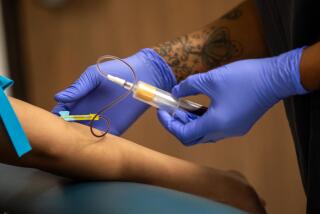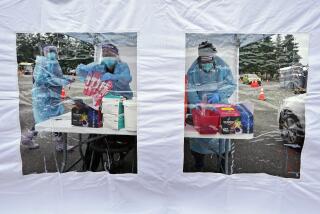CDC: HIV testing resulted in many new diagnoses
More people with HIV are aware of their status because of a three-year government campaign to get people, especially blacks, tested for the disease—18,432 people, to be exact. But not all got plugged into treatment afterward, says the CDC in a new report.
In 2007, the Centers for Disease Control and Prevention gave $111 million for expanding HIV testing to health departments in 24 states and the District of Columbia, where many blacks had already been diagnosed with AIDS. Nearly 2.8 million HIV tests were conducted between 2007 and 2010 as a result, and about 0.7% resulted in new diagnoses, the agency announced Friday in its Morbidity and Mortality Weekly Report.
Blacks made up about 60% of the tests and about 70% of the new HIV diagnoses.
Most, but far from all, of those diagnosed were linked to care afterward. Among the cases with follow-up data, 91% received their test results and 75% were linked to care.
Such follow-up care is crucial if the Expanded HIV Testing Initiative is to support the broader national strategy to reduce HIV/AIDS in the U.S., the CDC says in the report:
“However, for efforts like ETI to translate into better individual and population-level outcomes, persons infected with HIV must be engaged and retained in care, receive and adhere to effective treatment with HAART [highly active antiretroviral therapy] to maximize viral load suppression, and have access to ongoing prevention and support services, including risk-reduction counseling and other evidence-based behavioral interventions, partner services, substance use and mental health treatment, and case management.”
Officials hope that expanded testing might change the fact that 20% of those living with HIV don’t know it.
But there are signs, if slight, of progress. For the first time in nearly 10 years, there was an increase (just a bit) in the percentage of people (particularly young adults) who were “very concerned” about getting HIV, according to results from a Kaiser Family Foundation survey released earlier this week.
RELATED: More news from HealthKey






